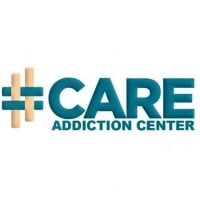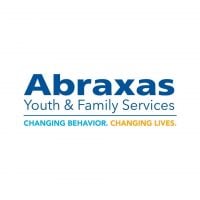Northwestern Medicine CDH Behavioral Health Services
Drug Rehab Center in Winfield, Illinois
The Northwestern Medicine CDH Behavioral Health Services in Winfield, Illinois provides comprehensive treatment for addiction and substance abuse, including detox, outpatient, dual-diagnosis, intensive outpatient, and inpatient levels of care, with personalized treatment plans and support from experienced staff.
About Northwestern Medicine CDH Behavioral Health Services in Illinois
Located in Winfield, Illinois, Northwestern Medicine CDH Behavioral Health Services specializes in providing alcohol and drug addiction treatment alongside mental health support for both adults and adolescents. With a focus on comprehensive care, the facility offers a range of services including psychological testing, counseling, intensive outpatient programming, and innovative treatments like transcranial magnetic stimulation (TMS). They are uniquely positioned to offer residential substance use disorder treatment and boast a suite of psychiatric subspecialties.
Accredited by the Joint Commission on Accreditation of Healthcare Organizations (JCAHO), Northwestern Medicine CDH Behavioral Health Services stands as a beacon of quality and reliability in addiction and mental health care. They accept a variety of payment options including Medicaid, Medicare, and most commercial insurance plans, ensuring a broad accessibility to their services. Their treatment plans are personalized, utilizing evidence-based therapies to address both substance use disorders and co-occurring mental health conditions.
- Innovative Treatment Options: Offers Transcranial Magnetic Stimulation (TMS) for patients with depression unresponsive to medication.
- Comprehensive Care for Adolescents and Adults: A wide range of services including intensive outpatient and residential programs tailored for specific age groups.
- Flexible Payment and Insurance Compatibility: Accepts Medicaid, Medicare, Tricare, and most commercial insurance plans, providing various financing and financial aid options.
Northwestern Medicine CDH Behavioral Health Services treats a spectrum of addictions and mental health issues, including alcoholism, opioid addiction, and dual diagnosis conditions. Utilizing an array of treatment methods like motivational interviewing, cognitive behavioral therapy, and relapse prevention, they offer numerous levels of care tailored to the individual needs of their patients, ranging from residential treatment programs to intensive outpatient and standard outpatient services.
Genders
Ages
Modality
Additional
Accreditations

JCAHO
Conditions and Issues Treated
Opioid addiction has become a significant health problem in the United States. When a person’s life becomes unmanageable because of an opioid addiction, treatment can help them get sober. Treatment includes medical care and counseling.
“With so many people struggling with opioid addiction, we need more care and attention for those who want to quit. Opioid addicts often take opioids when they experience a painful injury – that’s how the cycle starts! When someone begins taking their medication differently than prescribed or takes an excessive amount of drugs, it means they’re hooked on drugs and in danger of overdosing.
The most successful way to beat this is through detoxing from these types treatments at Northwestern Medicine CDH Behavioral Health Services in . Most facilities start by using medical support during the process while providing counseling services; rehabilitation comes later on after treatment has been completed successfully.
A “dual diagnosis” is when the individual has two medical issues at the same time. The top co-occurring mental disorders with addiction are depression, anxiety, ADHD, bi-polar disorder. Addiction is also considered a mental illness that is not a choice but rather a medical condition. Addiction can be caused by any number of underlying issues.
Dual diagnosis is provided by Northwestern Medicine CDH Behavioral Health Services to treat addictive tendencies as well as any untreated mental illnesses. This ensures successful long term health and recovery for patients after treatment has been completed.
Dual diagnosis is provided by Northwestern Medicine CDH Behavioral Health Services to treat addictive tendencies as well as any untreated mental illnesses for people in Illinois. This ensures successful long term health and recovery for patients after treatment has been completed.Levels of Care Offered
This center offers a variety of custom treatment tailored to individual recovery. Currently available are Detox, Dual-Diagnosis, Intensive Outpatient, Outpatient, with additional therapies available as listed below.
The first level of recovery is detox. It involves giving a person the opportunity to get the toxins out of their body safely. The individual receiving treatment at Northwestern Medicine CDH Behavioral Health Services typically will get ill during detox, and they will often start using again to get rid of unpleasant emotions and complicated physical responses. It is why having a Illinois medical professional present is so critical. A medical professional can make sure that patients do not start using again during detox and stay physically healthy during the process. They will also have treatment on a mental level to relieve their symptoms and guide them through the process.
Outpatient addiction treatment is beneficial for people who are able to function well in their day-to-day lives. It is recommended for people who are not yet ready to end their relationships with friends or family members who might be encouraging drug and alcohol use.
Intensive outpatient treatment is beneficial for:
- People who are able to attend treatment more than 3 times per week.
- People who do not meet the criteria for inpatient treatment.
- People who are able to contribute to their own recovery outside of the treatment center.
- People who are motivated towards recovery.
- People who are able to overcome addiction on their own without the need for higher levels of care.
Outpatient programs at Northwestern Medicine CDH Behavioral Health Services, the Winfield resident can live with their family while continuing with their job or studies. Treatment includes educating the patient on drug abuse, medications, and counseling sessions at the individual or group level. Outpatient treatment plans cover diagnosis, detoxification, management, and counseling. They are a popular option for those who have graduated from inpatient facilities.
Therapies & Programs
Individual therapy is a form of counseling where you meet with a trained professional one-on-one. Meeting with a therapist in this setting allows for a personal and trusting relationship to be built. This allows the patient to open up about sensitive or private issues they may not feel comfortable discussing in a group. Individual therapy helps identify the root causes of your addiction, which can help prevent relapse.
Couples therapy for drug addiction is a unique form of therapy that allows family members to work through the emotional issues of their loved one’s addiction together. Family members can support each other while learning how to cope with the addiction and encourage healthy changes. The two will work with a therapist to learn how the addiction affects themselves and the relationship.
Family therapy is often done alongside drug treatment to help addicts stay sober. The goal of family therapy for drug addiction is to create an environment where communication can happen without judgment, hostility, or blame. The therapist will sit with the family so they can learn how to communicate differently and provide new tools for dealing with emotions so that people don’t want to drink or do drugs. It’s important for families to focus on relapse prevention plans during treatment so that if the addict feels like they want to use again, they’ll know what steps they need to take together to prevent it from happening again in the future.
Group therapy sessions are another common addiction recovery service. These group sessions typically involve six to 12 addicts who meet regularly with a trained professional for support and guidance.
During these sessions, the group shares their experiences with one another and provides feedback that can help each member avoid relapse or overcome specific obstacles they are facing in their recovery process. With this type of support and guidance, addicts can feel like they are part of a community that understands their struggles and will help them get through the hard times.
Many people struggling with drug addiction have experienced some form of trauma in their lives. It is crucial that these individuals seek out professional help; otherwise, their drug abuse and addiction will likely continue.
Therapists and counselors at drug treatment centers employ several treatment programs to help people struggling with drug addiction, including trauma therapy. Trauma therapy helps people dealing with addiction by allowing them to confront the traumas of their past and move past them.
It is important to note that trauma therapy should not be confused with PTSD (post-traumatic stress disorder). Rather, it is used to treat the effects of trauma, which are often at the root of addiction.
Cognitive Behavioral Therapy (CBT) focuses on the underlying thoughts and behaviors that caused the problem of addiction in the first place and may cause a relapse. Negative feelings are common in drug abuse disorders, but they can lead to co-occurring disorders if not recognized. CBT involves strategies that help to change the behavior pattern by restructuring negative thoughts into positive ones. It helps to remove these feelings, and it provides long-term benefits. Also, CBT promotes self-awareness and self-control. It can be administered as a monotherapy or as part of combination therapy.
CBT can improve the patient’s mood, reduce drug cravings and boost success rates on treatment plans. Regular practice can help individuals handle negative attitudes, thoughts, and feelings without turning to drugs or alcohol. The core belief of Cognitive Behavioral Therapy (CBT) is that one’s moods, behaviors, and actions are all connected. Individuals can improve their quality of life using CBT. It helps addicts understand the patterns of thought and feelings that cause them to use drugs or alcohol and develop a healthy response.
It’s not as simple as quitting drinking or using drugs and expecting the hard part to be over. Many addicts in recovery have discovered that they need to improve skills such as time management, organization, communication, socialization, and self-esteem. Learning certain life skills can help those who are struggling with addiction.
Medical nutrition therapy for addiction helps patients at Northwestern Medicine CDH Behavioral Health Services avoid “trigger” foods. Someone who craves alcohol may be sugar addicted. Eating a balanced diet with adequate protein, vegetables, and fruit can help reduce drinking urges.
MNT is a type of addiction treatment that teaches patients about healthy eating habits while counseling them. These sessions include meal planning, cooking demonstrations, shopping tips, grocery store tours, and food education.
Nicotine replacement therapy is a drug treatment that allows people to get the effects of nicotine without chewing or smoking. The therapy is often done with a patch, and doses of nicotine are reduced until nicotine is no longer needed. NRT helps smokers get nicotine into their system without resorting to smoking, and it has been shown to be an effective way to help people quit smoking. Coupling NRT with counseling and other means of support gives long-term smokers a better chance of removing their unhealthy habit.
Patient Experience
Experiential Therapy at Northwestern Medicine CDH Behavioral Health Services
Drug addiction causes the formation of abnormal connections between neurons in the brain to form due to repeated exposure to drugs. These connections are responsible for addictive behaviors to drugs. Experiential therapy is done with patients individually and is different from traditional talk therapy. This therapy can help people revisit past traumas, heal, and move on in life in a more authentic way.
Experiential therapy uses activities to recreate experiences that may have caused trauma or negative emotions. These activities include role-playing, arts and crafts, animal care, music, or rock climbing. The individual will gradually experience calmness and love and change their perception positively through this therapy. Other than drug addiction, experiential therapy can be helpful for behavioral or eating disorders.
Payment Options Accepted
For specific insurance or payment methods please contact us.
Is your insurance accepted?
Ask an expert, call (888) 674-0062
Additional Details
Specifics, location, and helpful extra information.
Winfield, Illinois 60190 Phone Number(630) 933-4000 Meta DetailsUpdated April 15, 2024
Staff Verified
Northwestern Medicine CDH Behavioral Health Services Patient Reviews
There are no reviews yet. Be the first one to write one.
Winfield, Illinois Addiction Information
In 2016, more than 2,350 Illinoisans died from drug overdoses. More than 5,500 deaths annually occur in Illinois due to the abuse of alcohol and other drugs. 7.17% of Illinois residents reported using illicit drugs in the past month (2018). Substance abuse costs the state approximately $3.5 billion every year.
Treatment in Nearby Cities
- Gurnee, IL (36.8 mi.)
- East Peoria, IL (111.6 mi.)
- South Holland, IL (33.9 mi.)
- Lake Forest, IL (31.2 mi.)
- Geneseo, IL (107.4 mi.)
Centers near Northwestern Medicine CDH Behavioral Health Services
The facility name, logo and brand are the property and registered trademarks of Northwestern Medicine CDH Behavioral Health Services, and are being used for identification and informational purposes only. Use of these names, logos and brands shall not imply endorsement. RehabNow.org is not affiliated with or sponsored by Northwestern Medicine CDH Behavioral Health Services.




